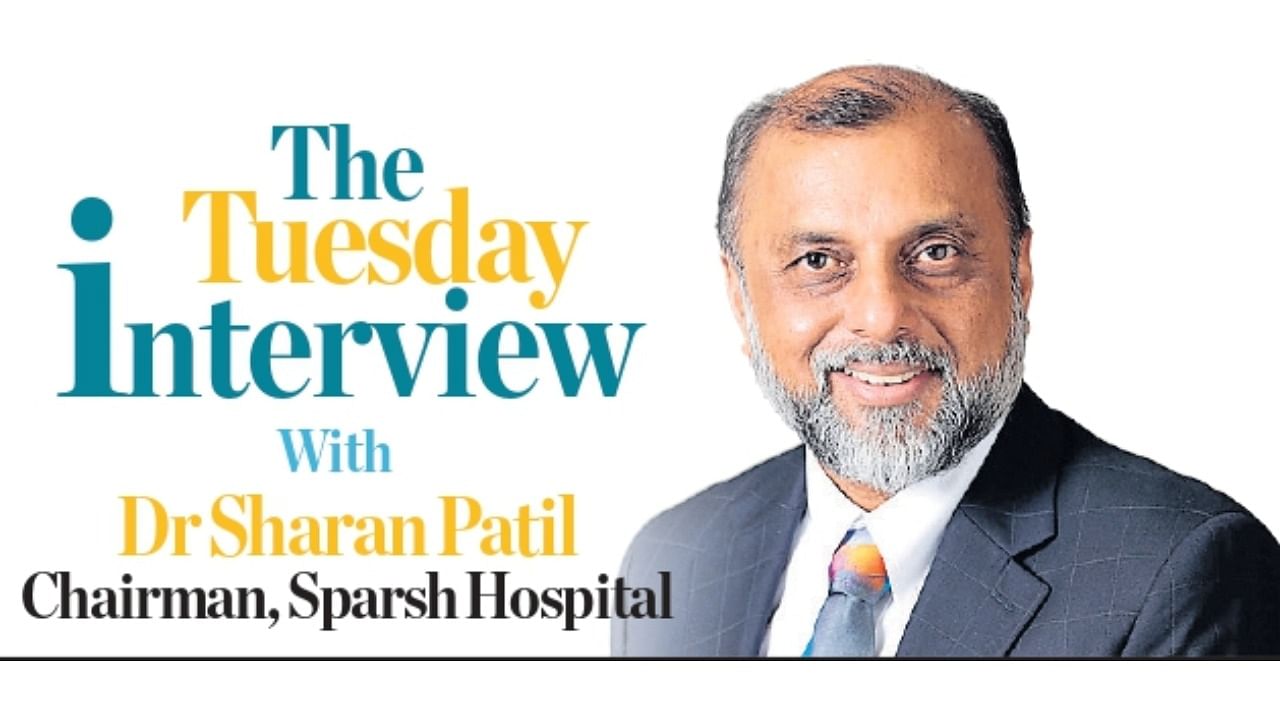
Credit: DH Illustration
Dr Sharan Shivaraj Patil, president, Indian Society of Hip and Knee Surgeons, and chairman and chief orthopaedic surgeon at SPARSH Group of Hospitals, returned to India from a long stint in the UK to make healthcare more affordable in the country where he was born and spent a better part of his younger years. A staunch advocate of advanced and affordable medical care for the grassroots, Dr Patil talks to DH’s Nina C George about why robotics and artificial intelligence is the way forward and how it can be assimilated into the system.
How does robotics impact healthcare, and which areas benefit the most?
User friendliness is what will make a huge difference. I feel it is important for two reasons: One, it’s going to give us a huge amount of data because robot functions are based on the data, so the coding of a situation, the patient information, and the diagnosis will become more accurate. Two, the treatment planning will be ready even before we execute things on the operating table. And when a treatment plan is in place, the precision of the execution will be very high. It is therefore possible to consistently get the best outcomes.
What about affordability? What is the government doing to lower costs so that all classes of people can access technology?
Any technology is going to cost a lot. But I think it’s just a question of numbers. As the technology gets better, we scale it, and more numbers are used, things become more affordable. The government does not look at private healthcare players as partners. The government has to define what’s the role of private healthcare in this country, because only then will people be able to take that long vision of what’s our role and what we should be doing. Nobody has the reach the government has. The scale at which it can execute things is unbelievable. When hospitals are about pure business, things will always cost more. So wherever they can be supported, they should be supported to bring down the cost for patients. We all know that private healthcare in our country is still a huge need.
Have you developed a roadmap for AI services in healthcare in Karnataka?
Many people who visit hospitals may not necessarily need to. For instance, someone experiencing chest pain late at night often rushes to a large hospital due to concerns about expertise. However, advancements in technology now enable us to extend healthcare services closer to people’s homes, in their neighbourhood hospitals. Connecting a neighbourhood hospital to a major one allows specialists like cardiologists, neurologists, orthopedic surgeons, and neurosurgeons from the large hospital to provide services remotely. Neighbourhood hospitals don’t require extensive facilities; they just need to facilitate patient connections with the major hospital’s communication centre through technology. Patients can conduct tests locally, upload results, and receive remote advice from experts.
What do you think of the criticism that doctors are increasingly depending on high-tech tools and losing their innate abilities to judge and diagnose?
There’s absolutely no replacement for empathy. That’s why I feel nurses’ jobs are safer than doctors’ jobs. What I’m saying is that empathy is a very important component of the whole story. AI is an aid, not a substitute for human emotions and what that comfort and service will give. I am not replacing a doctor’s empathy; I’m replacing a doctor’s ability with AI.
Are Bengaluru hospitals investing in R&D? Or is this primarily the domain of government-run research institutions? Is there a convergence of the city’s tech dominance and medical research?
There are gaps. I feel we could channel that even more. My feeling is that we are seeing medical science; whatever development happens, it’s because of technology. The human body has not changed too much. It takes centuries to change the human body. What has changed is how we understand the human body. Through technology, we understand the human body better because of imaging techniques. The study is what we do; that has changed the way we understand the human body, the way we operate, the drug discovery, everything, has come through other sciences; medical science is where it is. And everything else is added because of technology. Bengaluru is blessed with phenomenal technology. So we really can lead the world as to where we go next. And I really think we have always looked to the West to find solutions to our problems. The time has come for us as a nation to look inward and work out solutions for ourselves. I think we are absolutely capable of doing that. And that bridging should happen more intensely.